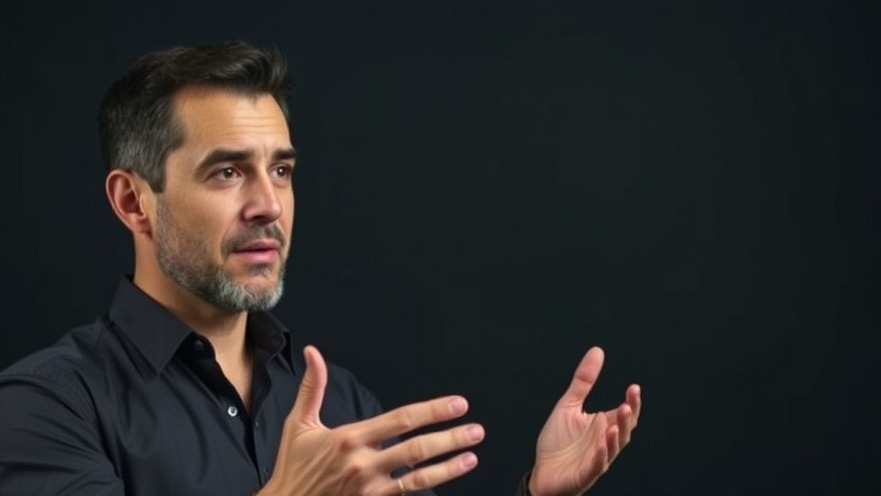
Reflecting on the Past: Why Gym Owners Must Navigate Hesitations
In the competitive world of fitness, gym owners often face potential clients who are hesitant due to previous negative experiences. It’s a common scenario: a prospect walks in, visibly unsure, perhaps haunted by a past program that promised results but fell flat. This presents an opportunity for gym owners to engage on a deeper level. Instead of brushing off these hesitations, consider the impact of addressing them head-on. This approach not only fosters trust but provides a pathway to help prospects find their footing again in the fitness landscape.
The video 'Don't let past mistakes burn you twice' presents an insightful approach to addressing potential members’ hesitations, prompting us to analyze how gym owners can effectively navigate and overcome these challenges.
The 'Don't Let Past Mistakes Burn You Twice' Philosophy
The cornerstone of successful client interactions lies in understanding fears and uncertainties. The message “Don’t let past mistakes burn you twice” serves as a compelling reminder that failure in the past should not restrict future possibilities. When speaking with a hesitant client, acknowledging their past challenges is crucial. Saying, ‘I totally understand that you spent a lot of money on programs that didn’t deliver,’ shows empathy and lays the groundwork for a more constructive dialogue.
Furthermore, it’s essential to redirect the conversation toward future possibilities. Equate their situation to the universally relatable experience of a breakup. Just because one relationship didn’t work out, it doesn’t mean future relationships should be scorned. This analogy resonates because life is about learning from experiences. Helping clients reframe their thinking can empower them to make informed decisions regarding their health and fitness journeys.
Strategies for Overcoming Client Hesitations
As a gym owner, leveraging the insights from the past can guide both you and your prospects toward a positive future. Start by asking open-ended questions to understand their unique experiences and fears:
- What specific challenges did you face with prior programs? Understanding these pain points helps tailor your services to fit their needs.
- What are your fitness goals now? Encouraging clients to focus on their aspirations can inspire hope and confidence.
- How can I support you in achieving these goals? This empowers clients, reinforcing that they are not alone in their journey.
By guiding your clients in this manner, you build a nurturing environment where they can express regarding past disappointments without fear of judgment.
Building a Culture of Support and Success
Creating supportive relationships should be a fundamental principle in your gym’s culture. Emphasizing communication fosters an atmosphere where clients can share their concerns and successes. Feature member testimonials and success stories that highlight transformations as a means to boost morale. Showcase how others overcame similar doubts and achieved their goals, proving that progress is not just possible, but a collective reality.
This creates a community that stands strong in shared experiences, further reducing apprehensions and encouraging new members to step into your gym with renewed hope.
Final Thoughts and a Call to Action
As a gym owner or fitness trainer, reiterating the value of persistence and adaptability can create a transformative experience for your clients. Encourage them to not dwell on past missteps but rather view them as steps toward growth. The journey to fitness is not just about physical transformation; it’s about overcoming mental barriers that once seemed insurmountable. Reflect on each engagement with potential clients as an opportunity to redefine their perspectives on fitness. Remember, every new relationship starts with a single step—open the door to that possibility.
So, what strategies are you implementing to encourage prospects and members alike? How are you fostering a supportive atmosphere that embraces growth? Take a moment to reflect on your current practices and consider how to improve them by focusing on personal experiences.
 Add Row
Add Row  Add
Add 




Write A Comment